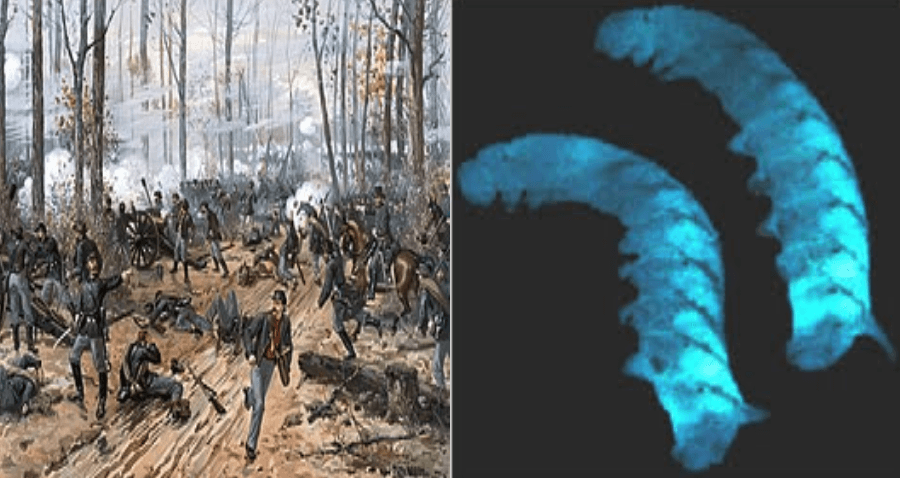The other day I took a break from the holidays and rewatched the movie "Gettysburg" and since then have been doing a bit of research on Gen Longstreet. You don't need to be a Civil War buff to appreciate this post but regardless of how you feel about the Union/Confederacy or that part of history, he's really an interesting (to me at least) part of the Gettysburg story.
Just as a quick back story/catchup- Longstreet graduated from West Point in 1842. By all accounts he was far from a model cadet. He had a history of racking up demerits and performing poorly in his studies. The records that I've found thus far was in 1842, 56 individuals graduated from West Point and Longstreet (being among them) was ranked... 54th in his class.
Despite his academic standings, it seems that he was still popular amongst his fellow classmates (perhaps he was the class clown?) and among the friendships he cultivated during his years at West Point, one of which happened to be Ulysses S. Grant who graduated a year later in 1843. Again- you don't need to be a historian but that in itself is rather interesting.
Skipping over a decade or two- despite graduating at the absolute bottom of his class in 1842, he quickly advanced through the officer ranks and once the Civil War broke out he eventually became Gen Robert E. Lee's "right hand man" and most trusted General and advisor by Lee's own accounts.
Ok- now that we're all caught up- back to Gettysburg. Knowing most folks here aren't history buffs and wanting to be concise- during the battle Gen Lee was in command with Longstreet as the #2. One could honestly devote their entire lives to studying just this one battle but Lee & Longstreet's discussions are well documented and they frankly were polar opposites of how to proceed.
The one part I'll mention on that topic is a part of the battle that I'm sure many folks have heard of (even if they're not fans of history themselves) and that's Pickett's charge on the 3rd day of the battle. Pickett's Charge is often used as a metaphor for futile (and foolish) endeavors even to today. But on the 3rd & final day of the battle at Gettysburg- I reckon many don't know that Longstreet publicly argued with Gen Lee against that decision and in front of their subordinates (this part is actually fairly well represented in the movie).
Another factoid of interest (to me) is that even though it's gone down into history as "Pickett's" charge, Pickett fell under Longstreet's command and he was given the task by General Lee to command the assault. Longstreet disagreed so adamantly with the order that when Pickett asked Longstreet to give the command, he could only nod in his direction (another part well documented).
(This is starting to get long so I'll break up the story here and continue on a future post).
-LD
Just as a quick back story/catchup- Longstreet graduated from West Point in 1842. By all accounts he was far from a model cadet. He had a history of racking up demerits and performing poorly in his studies. The records that I've found thus far was in 1842, 56 individuals graduated from West Point and Longstreet (being among them) was ranked... 54th in his class.
Despite his academic standings, it seems that he was still popular amongst his fellow classmates (perhaps he was the class clown?) and among the friendships he cultivated during his years at West Point, one of which happened to be Ulysses S. Grant who graduated a year later in 1843. Again- you don't need to be a historian but that in itself is rather interesting.
Skipping over a decade or two- despite graduating at the absolute bottom of his class in 1842, he quickly advanced through the officer ranks and once the Civil War broke out he eventually became Gen Robert E. Lee's "right hand man" and most trusted General and advisor by Lee's own accounts.
Ok- now that we're all caught up- back to Gettysburg. Knowing most folks here aren't history buffs and wanting to be concise- during the battle Gen Lee was in command with Longstreet as the #2. One could honestly devote their entire lives to studying just this one battle but Lee & Longstreet's discussions are well documented and they frankly were polar opposites of how to proceed.
The one part I'll mention on that topic is a part of the battle that I'm sure many folks have heard of (even if they're not fans of history themselves) and that's Pickett's charge on the 3rd day of the battle. Pickett's Charge is often used as a metaphor for futile (and foolish) endeavors even to today. But on the 3rd & final day of the battle at Gettysburg- I reckon many don't know that Longstreet publicly argued with Gen Lee against that decision and in front of their subordinates (this part is actually fairly well represented in the movie).
Another factoid of interest (to me) is that even though it's gone down into history as "Pickett's" charge, Pickett fell under Longstreet's command and he was given the task by General Lee to command the assault. Longstreet disagreed so adamantly with the order that when Pickett asked Longstreet to give the command, he could only nod in his direction (another part well documented).
(This is starting to get long so I'll break up the story here and continue on a future post).
-LD






